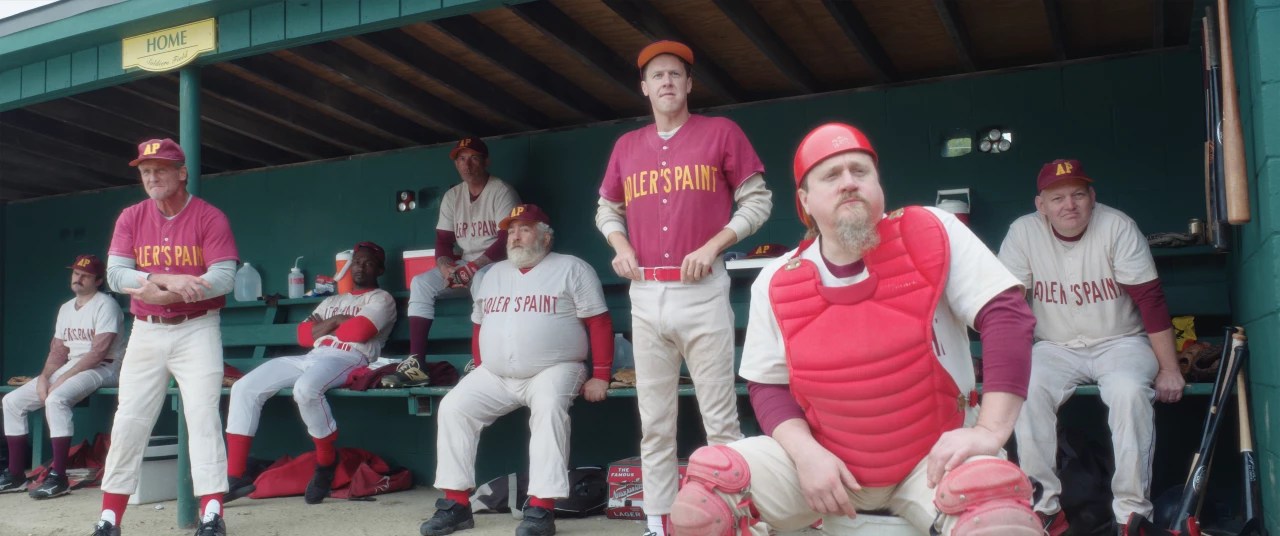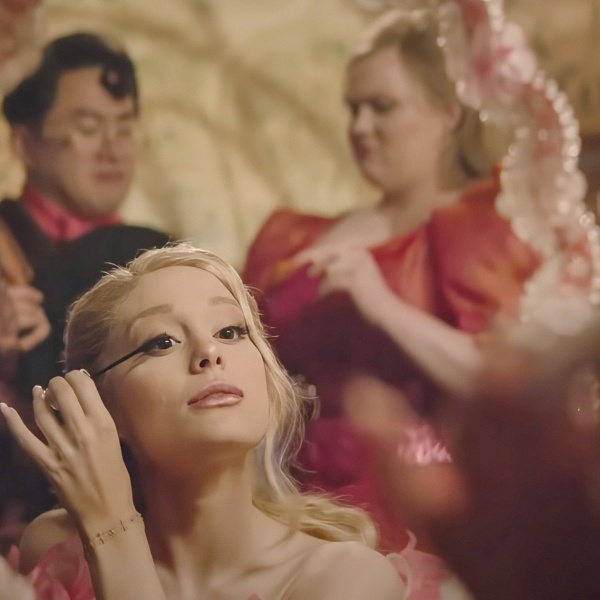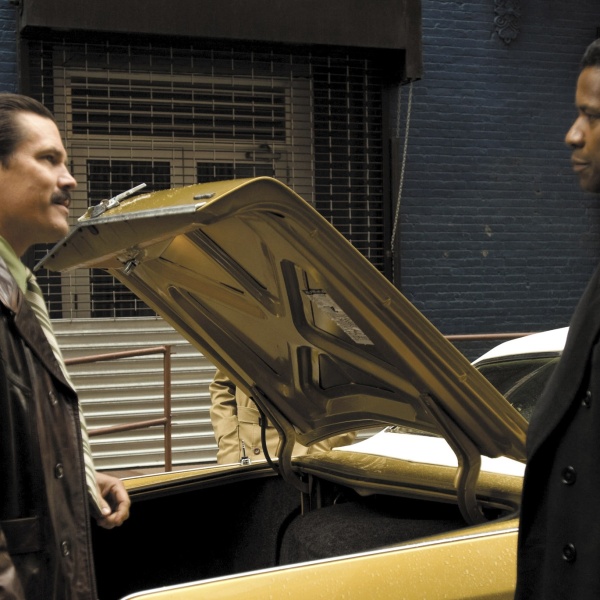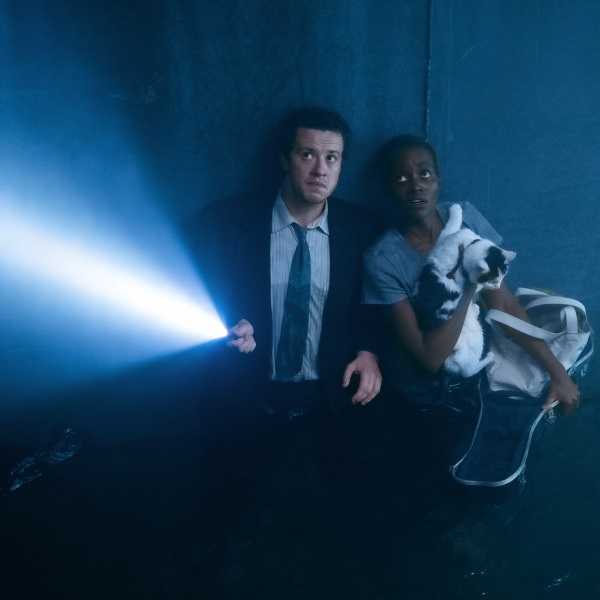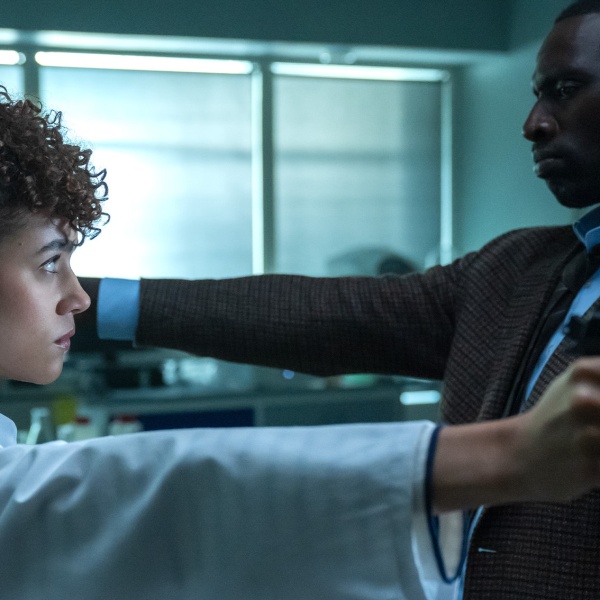
In front of empty wooden bleachers on a late summer day in Massachusetts, two squads of out-of-shape, middle-aged men show up to play a game of baseball on what they all expect to be one of their saddest afternoons in recent memory. For decades, this recreational league has been the social glue that binds the men in this community together. But it’s all about to disappear when the local field is destroyed after the season, which ends today. So the men load their coolers up with cheap beer, spend copious amounts of time stretching, and prepare to give their summer haven a glorious send-off before they have to find something else to do with their weekends.
Carson Lund’s directorial debut (he also serves as cinematographer on another Cannes premiere, “Christmas Eve in Miller’s Point”) shares its name with a slow-moving pitch that has largely been forgotten by modern baseball players — and it’s a fitting title for a film that embraces the leisurely pacing of America’s national pastime. Television executives have spent countless hours in recent years obsessing over how to make baseball games move faster, but many a true devotee will tell you that part of the game’s charm lies in its ability to facilitate socialization. A few seconds between pitches gives the first baseman time to exchange pleasantries with the runner trying to steal second, and spectators can usually find time to buy a hot dog without worrying about missing anything important. “Eephus” is a film that understands this, and the script (which Lund co-wrote with Michael Basta and Nate Fischer), shuffles along with the rhythm of a baseball game. Exposition comes out in brief two-sentence exchanges between pitches and longer asides between innings, allowing audiences to experience the game with the same cadence that the players do.
As beers are cracked and meatballs are thrown, the game slowly turns into a stalemate that’s irritatingly adept at withstanding external pressure to end prematurely. Umpires reach the end of their shift and go home, but the game continues in front of empty bleachers. When the score is still tied after the bottom of the ninth, plans for postgame drinks are scrapped in favor of extra innings. When the last shreds of sunlight vanish, everyone pulls their car up to the field and turns on their headlights. More than a few men openly wonder why they bother playing when darkness has stripped the game of any actual meaning. Nobody is able to articulate a good reason, but they’re not about to end a chapter of their lives on such an anticlimactic note. The answer that wins the day is “We gotta finish just to say we did it.”
Almost too big to even be considered an ensemble film, “Eephus” plays out like a vast tableau of the way this recreational league has shaped multiple generations of men. Lund introduces us to two dozen players of varying ages and ethnicities spread across the two teams, but none of the individual characters are particularly memorable on their own terms. That’s not an indictment of anyone’s writing or acting, but a reality necessitated by the film’s larger point: These men are only showing us the parts of themselves that they bring to the field, and years of playing baseball together has shaped their little platoon into a coherent social organism with its own language, jokes, and rules of both the spoken and unspoken varieties.
That’s why the loss of this specific baseball league on this specific field feels so profoundly tragic to everyone. More than just giving up a favorite hobby, each man is saying goodbye to a version of himself that only exists in one context. Throughout the film, multiple suggestions of alternative activities to fill the newfound void are quickly swatted away. Nobody wants to play in the other baseball league two towns over because the drive is too long and the field is too close to a septic tank. Nobody even bothers to offer a reason why they don’t want to meet up in a bar during the winter months, but the idea fizzles out in a matter of seconds. Even if the bodies and names were the same, the men who would show up in any other setting wouldn’t be the same ones who have played on this field for 20 years.
A lot of ink has been spilled over the loneliness epidemic that plagues American men in the 21st century, but few films crystalize the problem as efficiently as “Eephus.” Underneath all the jokes about men not having enough friends or outsourcing their social lives to their wives is the truth that adults seldom get together for the sheer purpose of getting together. We get together to do things. Whether it’s a bowling league or a church group or a running club or a PTA meeting, the importance of the actual activity is often secondary to the social bonds it facilitates. But that phenomenon is hard to identify until you’ve spent years doing the activity. No one in “Eephus” has read enough Robert D. Putnam or Alexis de Tocqueville to explain that, but on some level they all feel it.
One of the most admirable artistic choices that “Eephus” makes is the decision not to blame anyone for the social decay that it portrays. The field is being destroyed to build a school, not some parking monstrosity or shopping mall owned by an evil corporation. An unbiased observer might even conclude that educating kids is a better use of this land than giving grown men a space to get hammered together. The film’s only villain is the passage of time, and its protagonists are simply facing the unpleasant realization that their era is ending sooner than their lifespans. It’s the fate that awaits most of us in one capacity or another, but nobody wants to think about that. So we play those extra innings in pitch darkness, just to say that we did it.
Grade: A-
“Eephus” premiered at the 2024 Cannes Film Festival. It is currently seeking U.S. distribution.
